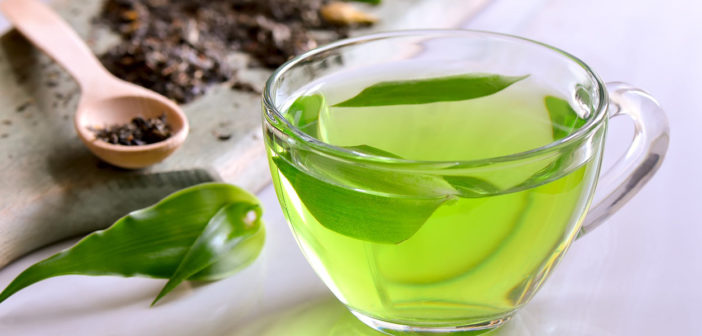Green tea, is one of the most consumed beverages across the globe especially in Asia and the Middle East. The popularity of green tea in Nigeria is on the rise and the many people for whom it’s a staple may be the healthier for it, both physically and mentally. Green tea has some well-known antioxidants, namely EGCG, a catechin that’s also found in berries and apples.
A new study looks at how EGCG may counter some of the deleterious effects of a fatty, high-sugar diet (typical Western diet). The caveat is that the study was done in mice, so it’s not totally clear how the results would apply to us—but given what we know about how antioxidants function, and the overlaps between mice and humans, it’s likely that they apply to us as well.
The researchers split young adult mice into three groups. One group, serving as controls, ate a standard lab chow diet and drank plain water. Another group ate a high-fat diet (with 45% of their calories coming from fat), and drank water spiked with fructose. A third group ate the same high-fat, high-sugar diet as above, but their water was additionally laced with EGCG.
At the end of 16 weeks on their respective regimens, the researchers measured mice’s body weight, insulin function, genetic expression and cognitive function.
It turned out that, as expected, the mice eating the high-fat/high-sugar diet were heavier than those eating a regular diet. But they were also significantly heavier than those who’d eaten a high-fat/high-sugar diet that was supplemented with EGCG—in other words, the addition of EGCG seemed to counter the effects of the bad diet. The ECGC-consuming mice also performed better in several ways on the Morris water maze, a classic test of cognitive and memory function in rodents.
What’s interesting about the study was that the team also illuminated some of the mechanisms behind the connection. For instance, they found that insulin function in the central nervous system was better in the EGCG-exposed mice. The compound also seemed to have a neuroprotective effect on the brain, specifically protecting new neurons in the hippocampus, the part of the brain that governs learning and memory. Finally, EGCG affected the expression of genes involved in appetite regulation, which are known to be dysregulated when an animal or person consumes a high-fat, high-sugar diet.
And the results are likely relevant to us as well, especially given the existing research on green tea consumption and human health. For example, some studies have suggested that regular green tea drinkers have a lower risk of cancer, including breast cancer. Other work has shown that serious green tea drinkers (five cups/day) had a 28% reduced risk of heart disease (interestingly, the same connection didn’t exist for black tea).
It also fits into what we know about the effects of various diets on health: For example, there’s good evidence that, in addition to weight gain and metabolic syndrome, a typically Western diet is also linked to cognitive decline and Alzheimer’s disease. On the flip side, plant-based diets like the Mediterranean diet are linked to better body weight, better cognition and reduced dementia risk—it’s likely that one of the reasons for this is the higher antioxidant content of the plant-based diet.
One caveat is that many of the existing green tea studies have been done in Asian populations, who may be eating a very different diet from people in the U.S. So there could be other variables at play, and more complex interactions at work. Therefore, the study definitely isn’t license to eat junk food in the hopes that chasing it with green tea will offset the damage. It’s more an exploration of how powerful the effects of dietary antioxidants can be.
That said, if you currently drink green tea, keep it up. And if you don’t, feel free to give it a try. Just don’t forget to do the rest of the things we know to be part of a healthy diet and lifestyle as well.
“Green tea is the second most consumed beverage in the world after water, and is grown in at least 30 countries,” said study author Xuebo Liu in a news release. “The ancient habit of drinking green tea may be a more acceptable alternative to medicine when it comes to combating obesity, insulin resistance and memory impairment.”
Source: Forbes




